
Axum: The Ancient Heartbeat of Ethiopia
Axum, nestled in the northern highlands of Ethiopia, is a city steeped in history and mystery. Known as the cradle of Ethiopian civilization, it boasts an impressive array of archaeological wonders that hint at its grand past. The city was once the capital of the Aksumite Empire, one of the great civilizations of the ancient world, which thrived from approximately 100 AD to 940 AD. Walking through the streets of Axum, you will find yourself surrounded by relics that tell the tale of a once-mighty empire. One of the most iconic sights in Axum is the towering obelisks or stelae, which stand as silent sentinels of the city's storied past. These ancient monoliths, some of which reach over 20 meters in height, are thought to mark the graves of ancient kings and nobles. The largest of these, the Great Stele, is an awe-inspiring sight, though it lies broken on the ground. The nearby St. Mary of Zion Church complex is another must-visit, believed by many to house the Ark of the Covenant. This site is a pilgrimage destination for Ethiopian Orthodox Christians and offers a serene and spiritual experience. Exploring Axum also means delving into its vibrant culture and traditions. The local market is a bustling hub where you can find traditional crafts, spices, and textiles. Engaging with the friendly locals offers a glimpse into the daily life and customs that have been preserved through the centuries. Additionally, Axum is a gateway to exploring the surrounding Tigray region, known for its rock-hewn churches and stunning landscapes. Whether you are a history buff, a cultural enthusiast, or simply looking for a unique travel experience, Axum promises an unforgettable journey through time.
Local tips in Axum
- Visit the Axum Obelisk early in the morning to avoid crowds and capture the best photos.
- Wear comfortable shoes as many of the sites require walking on uneven terrain.
- Respect local customs and dress modestly, especially when visiting religious sites.
- Hire a local guide to gain deeper insights into the history and significance of the archaeological sites.
- Don't miss the local market on Saturdays for a vibrant display of culture and goods.
Axum: The Ancient Heartbeat of Ethiopia
Axum, nestled in the northern highlands of Ethiopia, is a city steeped in history and mystery. Known as the cradle of Ethiopian civilization, it boasts an impressive array of archaeological wonders that hint at its grand past. The city was once the capital of the Aksumite Empire, one of the great civilizations of the ancient world, which thrived from approximately 100 AD to 940 AD. Walking through the streets of Axum, you will find yourself surrounded by relics that tell the tale of a once-mighty empire. One of the most iconic sights in Axum is the towering obelisks or stelae, which stand as silent sentinels of the city's storied past. These ancient monoliths, some of which reach over 20 meters in height, are thought to mark the graves of ancient kings and nobles. The largest of these, the Great Stele, is an awe-inspiring sight, though it lies broken on the ground. The nearby St. Mary of Zion Church complex is another must-visit, believed by many to house the Ark of the Covenant. This site is a pilgrimage destination for Ethiopian Orthodox Christians and offers a serene and spiritual experience. Exploring Axum also means delving into its vibrant culture and traditions. The local market is a bustling hub where you can find traditional crafts, spices, and textiles. Engaging with the friendly locals offers a glimpse into the daily life and customs that have been preserved through the centuries. Additionally, Axum is a gateway to exploring the surrounding Tigray region, known for its rock-hewn churches and stunning landscapes. Whether you are a history buff, a cultural enthusiast, or simply looking for a unique travel experience, Axum promises an unforgettable journey through time.
When is the best time to go to Axum?
Iconic landmarks you can’t miss
Axum Tsion St. Mary
Explore the historic Axum Tsion St. Mary, an Orthodox church in Aksum, where spirituality and ancient history converge.
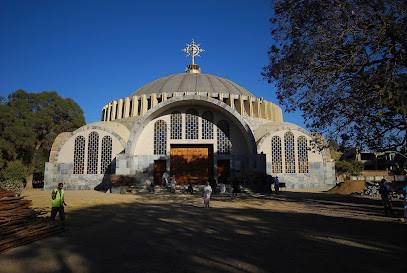
ኣኽሱም ሓውልት | ሓወልቲ ኣኽሱም ቑፅሪ-1 | Akhsum Obelisk No-1
Explore the grandeur of Aksum Obelisk No-1, a UNESCO World Heritage Site that embodies the rich history and culture of ancient Ethiopia.
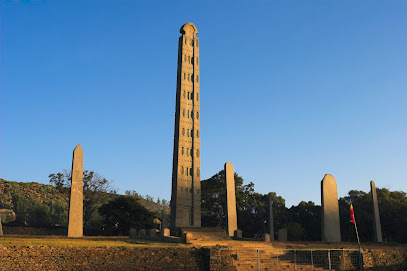
Dungur Palace (Queen of Sheba Palace)
Explore the enchanting Dungur Palace, a historical landmark in Aksum, echoing the legendary tales of the Queen of Sheba and Ethiopia's rich heritage.
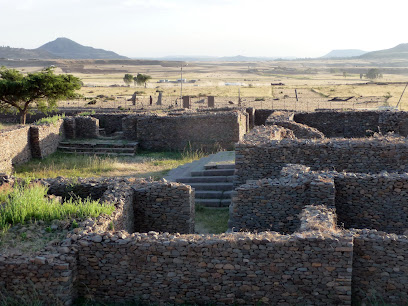
ቤተ መንግስቲ ንግስቲ ሳባ | Dungur Palace (Queen of Sheba Palace)
Explore the Dungur Palace in Aksum, an ancient marvel steeped in history, mystery, and the legendary tales of the Queen of Sheba.
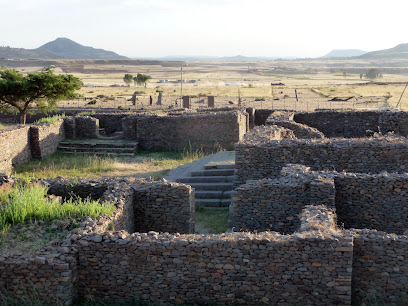
King Kaleb Palace
Discover the rich history and stunning architecture of King Kaleb Palace, a premier historical landmark in Aksum, Ethiopia.
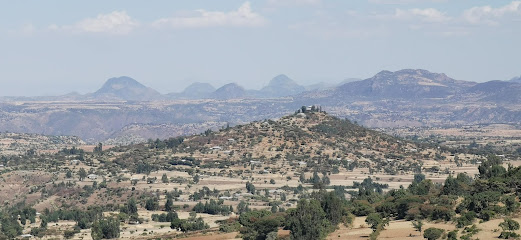
Ezana Stone
Explore the Ezana Stone in Aksum, Ethiopia, a historical landmark that unveils the rich heritage of the Aksumite Empire and its profound impact on Christianity.
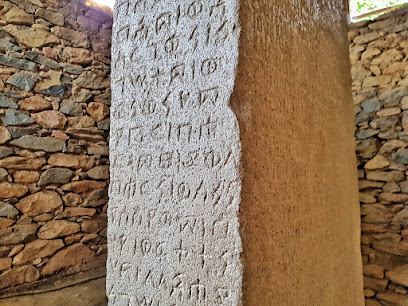
Atranos Fantasy Hotel and Spa
Experience unparalleled luxury and rejuvenation at the Atranos Fantasy Hotel and Spa, your serene retreat in Aksum surrounded by breathtaking landscapes.
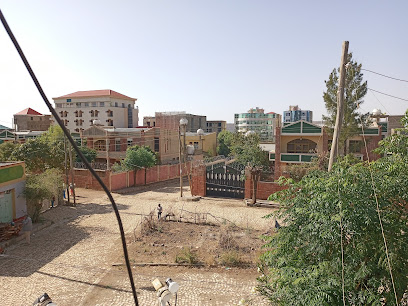
Aksum
Experience the rich history of Aksum, Ethiopia, where ancient obelisks and archaeological treasures reveal the heart of a once-great civilization.
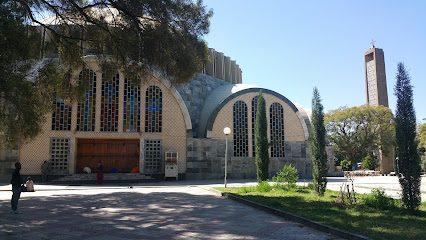
Nyala Hotel Axum
Discover the perfect blend of comfort and culture at Nyala Hotel Axum, your gateway to the wonders of historical Ethiopia.

Kahsay Beyene, Axum, Tigray
Immerse yourself in the spiritual and historical heritage of Ethiopia at Kahsay Beyene, a stunning church in the ancient city of Axum.

Queen of Sheba's Bath
Explore the serene beauty and rich heritage of Queen of Sheba's Bath in Aksum, a tranquil lake steeped in history and natural wonder.
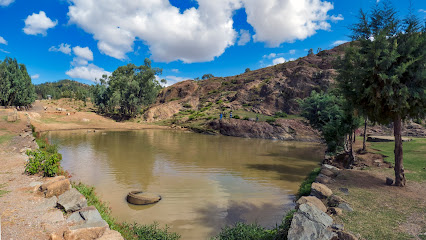
Abba Pentalewon
Discover the spiritual and historical essence of Aksum at Abba Pentalewon Church, a remarkable example of Ethiopian religious architecture.
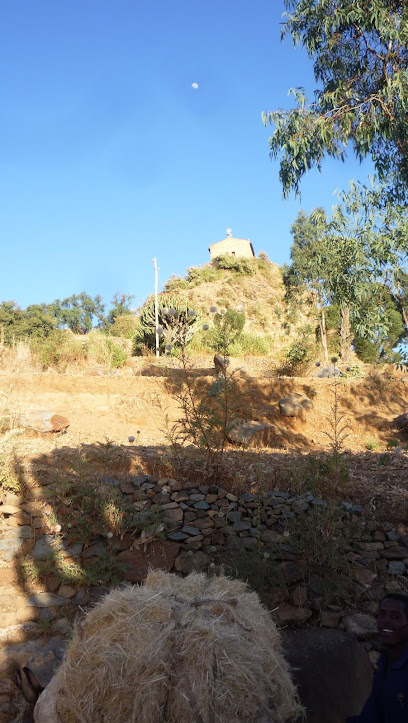
ቤተ ክርስትያን እንዳ ኣርባዕተ እንስሳ / Arabtu Ensessa Church
Explore the Arabtu Ensessa Church in Aksum, a stunning architectural marvel steeped in rich history and spiritual significance.
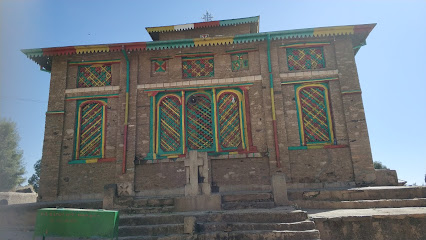
Aksum Old Quarter
Explore the Aksum Old Quarter: A UNESCO World Heritage site rich in history, culture, and ancient architectural marvels.

ቤተክርስቲያን እንዳየሱስ | Jesus Church
Discover the spiritual and architectural wonders of the Jesus Church in Aksum, a cornerstone of Ethiopia's rich Christian heritage.
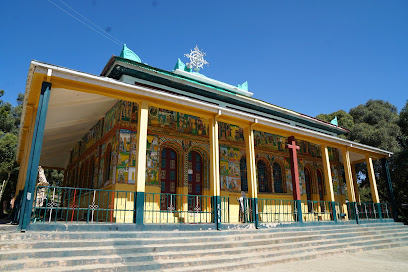
Unmissable attractions to see
Axum Tsion St. Mary
Explore the spiritual heart of Ethiopia at Axum Tsion St. Mary, an iconic Orthodox church steeped in history and architectural beauty.
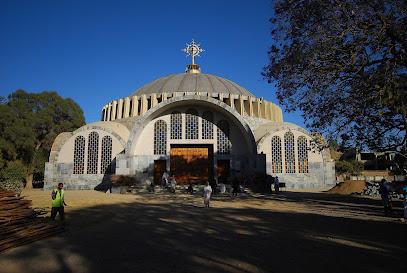
ቤተ መንግስቲ ንግስቲ ሳባ | Dungur Palace (Queen of Sheba Palace)
Explore the legendary Dungur Palace, the enchanting ruins of the Queen of Sheba's residence in Aksum, Ethiopia, and delve into ancient history.
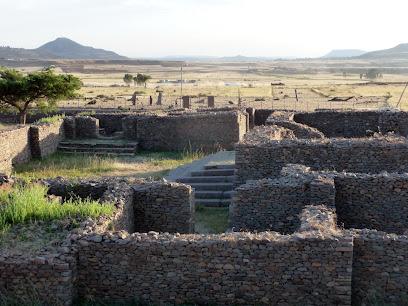
TOMB OF KING BAZEN
Explore the Tomb of King Bazen, a historical gem in Aksum, Ethiopia, revealing the rich heritage of the ancient Aksumite Empire.
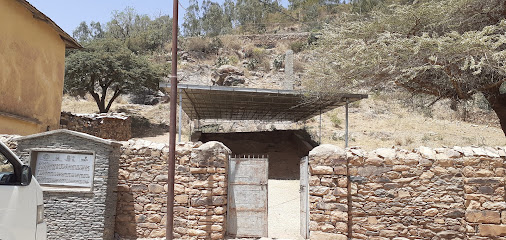
Holly Land of Aksum | ምድረ ፅዮን ከተማ ኣኽሱም ኣጋግዘ ዝተለዓለ ፎቶ
Explore the historic Holly Land of Aksum, where ancient obelisks and sacred churches narrate the story of Ethiopia's rich heritage and cultural legacy.
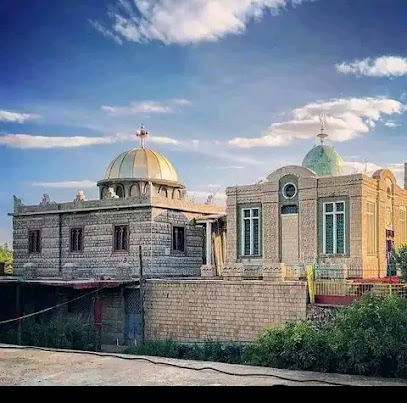
መላዞ / Melezzo
Explore Melezzo in Aksum: A Journey Through Ethiopia's Ancient History and Breathtaking Landscapes.

Animal Market
Experience the vibrant culture and lively atmosphere at Aksum's Animal Market, a unique glimpse into local life and trade in Ethiopia.

Kaleb tomb
Discover the awe-inspiring Tombs of Kings Kaleb & Gebre Meskel in Aksum, a UNESCO World Heritage site steeped in rich Ethiopian history and culture.

Ta'akha Myryam Place
Explore the historical significance and breathtaking architecture of Ta'akha Myryam Place, a must-see attraction in Aksum, Ethiopia.
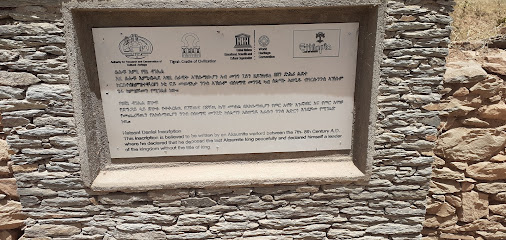
School
Explore the ancient city of Aksum, home to remarkable obelisks and rich Ethiopian heritage, a UNESCO World Heritage site filled with history.

Mezabr
Explore the stunning landscapes and rich culture of Mezabr, a hidden gem in Tigray, Ethiopia, perfect for adventurous travelers.

Enda'gabr obelisk
Explore the Enda'gabr Obelisk, a stunning ancient monument in Kewanit, Ethiopia, showcasing remarkable craftsmanship and deep historical significance.

Oasis
Explore the tranquil Oasis in Aksum, a lush park offering peace, beauty, and a touch of local history in every visit.

Tilahun Hailu garden
Explore the lush landscapes and tranquil beauty of Tilahun Hailu Garden in Aksum, a perfect retreat for nature lovers and history enthusiasts alike.

May ako outdoor park ማይዓኮ መናፈሻ
Explore the tranquil beauty of May Ako Outdoor Park in Aksum, where nature meets history in Ethiopia's captivating landscapes.

BRHANE TSEGAY GARDEN
Explore the serene beauty of Brhane Tsegay Garden, a tranquil oasis in Aksum, Ethiopia, perfect for relaxation and nature lovers.

Essential places to dine
AB Cultural Restaurant
Experience the flavors of Ethiopia at AB Cultural Restaurant in Aksum - where tradition meets taste in a vibrant setting.
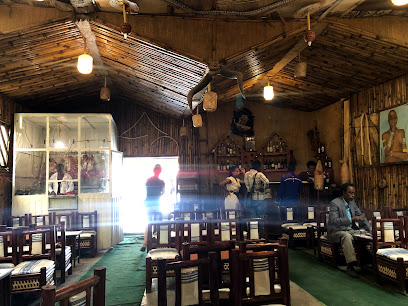
Antica Special Cultural Restaurant
Experience the heart of Ethiopian culture and cuisine at Antica Special Cultural Restaurant in historic Aksum.
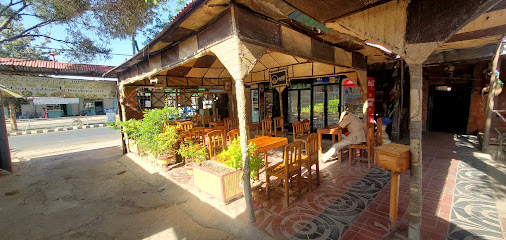
Lucy Traditional Restaurant
Savor authentic Ethiopian cuisine at Lucy Traditional Restaurant in Aksum—where every dish tells a story.
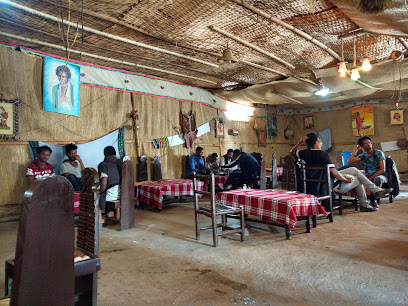
Prima Restaurant and Pizzeria
Experience the vibrant tastes of Ethiopia with traditional dishes and pizzas at Prima Restaurant and Pizzeria in Aksum.
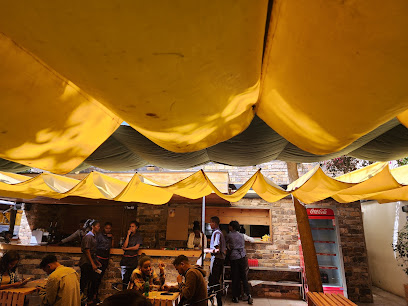
ገዛ ያታ / Geza Yeta
Experience the rich flavors of Ethiopia at Geza Yeta in Aksum - where tradition meets taste in every dish.
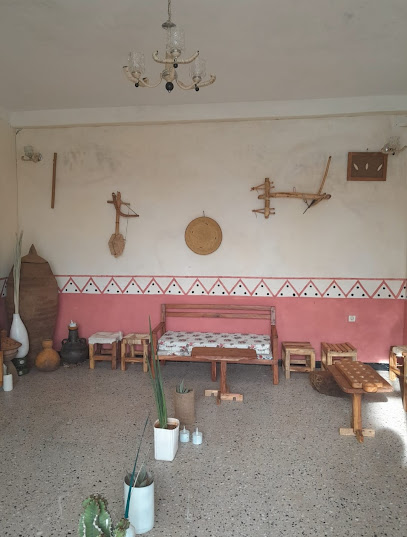
Central cafe Restaurant and pastry
Experience authentic Ethiopian cuisine at Central Cafe Restaurant and Pastry in historic Aksum - where every bite tells a story.
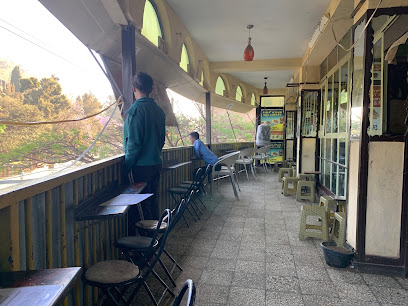
Habesha Traditional Restaurant
Experience authentic Ethiopian cuisine at Habesha Traditional Restaurant in Aksum - where every meal tells a story.

Weini Cafe
Experience authentic Ethiopian cuisine at Weini Cafe in Adwa - where delicious flavors meet warm hospitality.

Tsega Cafe & Restaurant
Discover authentic Ethiopian cuisine at Tsega Cafe & Restaurant in Aksum – where tradition meets flavor.

አልመዳ ምግብ ቤት | Almeda Restaurant
Experience the rich flavors of Ethiopia at Almeda Restaurant in Adwa, where traditional cuisine meets warm hospitality.

Zenebesh Restaurant
Discover the essence of Ethiopian cuisine at Zenebesh Restaurant in Adwa - where tradition meets taste in every bite.

AKU Cafeteria
Savor authentic Ethiopian dishes at AKU Cafeteria, where every meal is a celebration of culture and flavor.

Hani Pastry Shop
Discover Hani Pastry Shop in Aksum for an authentic taste of Ethiopian pastries amid historical wonders.
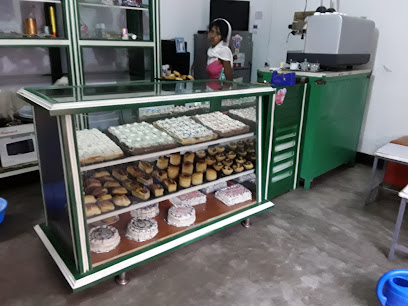
Mini-Pastry
Experience authentic Ethiopian flavors at Mini-Pastry in Aksum—where delicious pastries meet warm hospitality.

Sunshine Restaurant
Experience authentic Ethiopian cuisine at Sunshine Restaurant in Adwa, where each dish tells a story of rich cultural heritage.

Markets, malls and hidden boutiques
MESI SUPER MARKET
Discover the flavors of Ethiopia at MESI Super Market in Aksum, your go-to destination for local products and traditional delicacies.
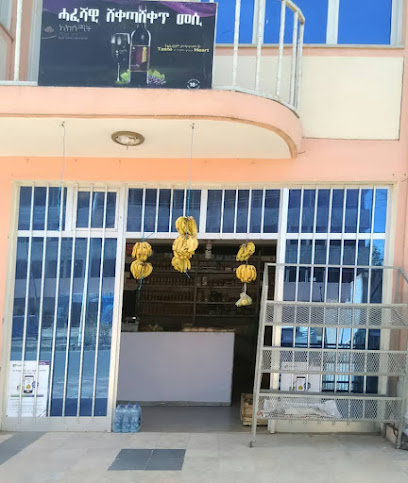
Hadas Berhe basket shop
Explore the artistry of Aksum at Hadas Berhe Basket Shop, where handmade baskets capture the essence of Ethiopian craftsmanship.
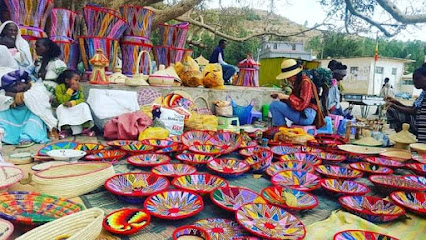
St Mary Pharmacy
Explore Aksum with confidence; St Mary Pharmacy offers essential health products for every traveler’s needs.
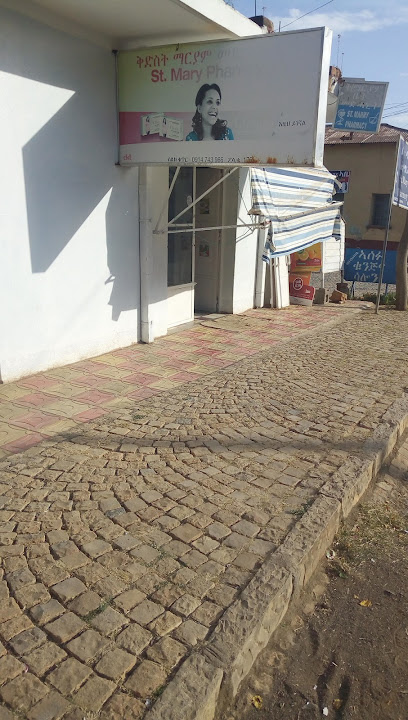
Kenian sanitary Axum
Explore Kenian Sanitary Axum in Aksum, Ethiopia – your go-to destination for quality building materials and local construction insights.
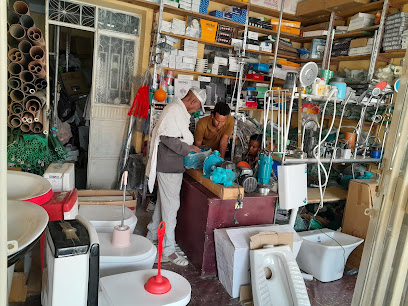
Elsa Coffee
Experience the essence of Ethiopian culture at Elsa Coffee, a cozy haven for coffee lovers in the historical city of Aksum.
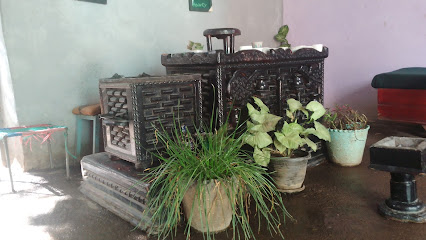
Ezana cafe
Discover the authentic flavors of Aksum at Ezana Cafe, a charming bakery offering traditional Ethiopian pastries and a cozy atmosphere.
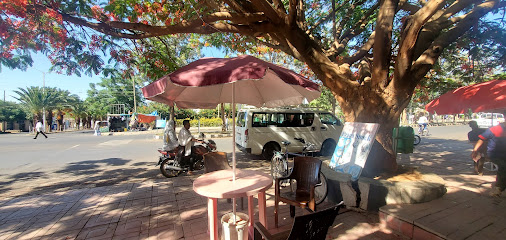
Adolis Market Centre ኣዶሊስ ዕዳጋ ማእኸል
Explore the vibrant Adolis Market Centre in Aksum, where local culture and delightful products await every visitor.
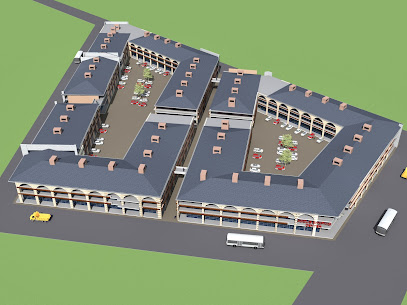
Mdf
Experience the vibrant shopping scene at Mdf Mall in Aksum, where modern retail meets Ethiopia's rich cultural heritage.
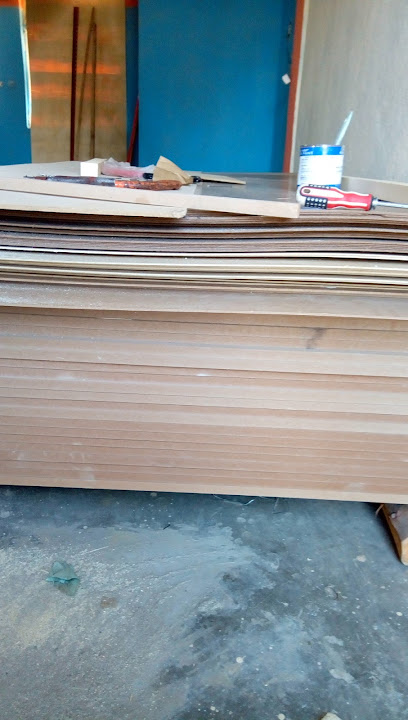
MDF
Discover the vibrant shopping experience at MDF Shopping Mall in Aksum, where culture and commerce meet in a lively atmosphere.
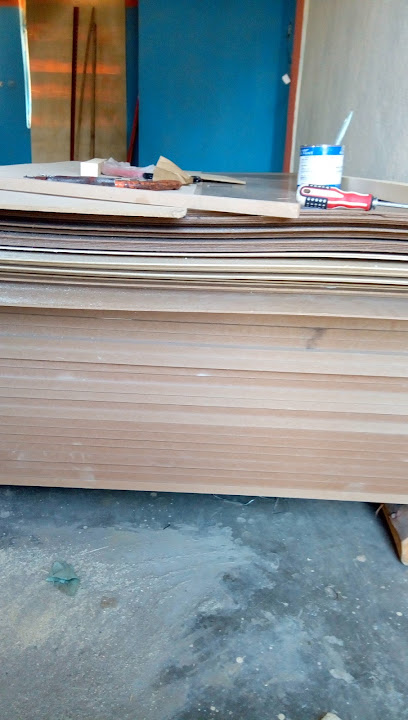
ቅዱሰ ጀወርግሰ ቅርፃቕርፂ መሸጥን መጎብነይን | St. George Sculpture Sales and Tours |
Explore the artistic treasures of Ethiopia at St. George Sculpture Sales and Tours, where history and craftsmanship come together.
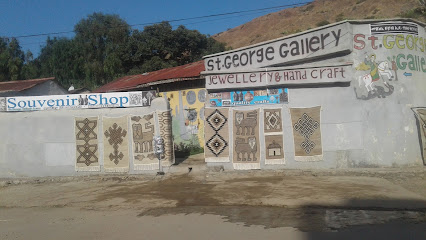
kaleb stone
Explore the vibrant flavors of Aksum at Kaleb Stone, your go-to grocery store for authentic Ethiopian ingredients and local culture.
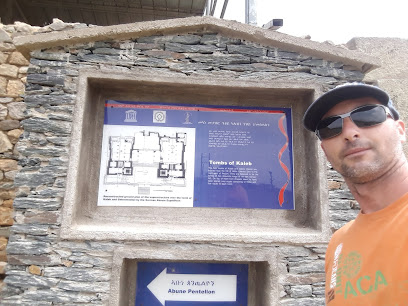
Essential mobile and computer solution
Discover modern technology amidst the ancient wonders of Aksum at Essential Mobile and Computer Solutions, your one-stop electronics shop.

Aksum City Main Station 2011 Ec
Discover the Aksum City Main Station for top-notch electronic goods in the heart of Ethiopia's historic city.

እንዳ ቡን ኣሰፉ | Assefu Coffeehouse
Experience the heart of Ethiopian coffee culture at Assefu Coffeehouse in Aksum, where tradition meets warmth and flavor.

መሽጢ ቕርፃ ቕርፂ | Souvenir Shop|
Explore Aksum's vibrant souvenir shop, where unique gifts and traditional Ethiopian crafts await to enrich your travel experience.
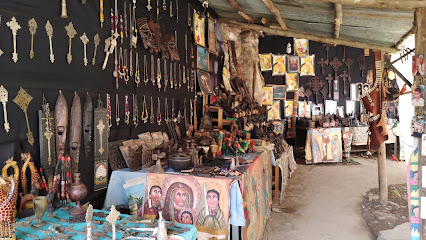
Essential bars & hidden hideouts
ሳቢያን ኢንተርናሽናል ሆቴል | Sabean International Hotel
Experience the charm of Aksum at Sabean International Hotel, where modern comfort meets rich cultural heritage in the heart of Ethiopia.

Yared Zema International Hotel
Experience comfort and culture at Yared Zema International Hotel, your gateway to the ancient wonders of Aksum, Ethiopia.

ኩዳ ፒዛን ዳጁስን | Kuda Juice And Pizzeria
Experience the best of Aksum with delicious pizzas and refreshing juices at Kuda Juice And Pizzeria, a culinary gem for tourists.
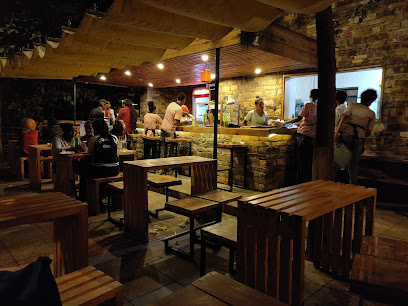
ሆቴል ኢትዮጲስ ኣክሱም | Ethiopis Hotel Aksum
Discover the ancient wonders of Aksum while enjoying the comfort and local charm of Ethiopis Hotel Aksum.

Atranos Fantasy Hotel and Spa
Discover luxury and tranquility at Atranos Fantasy Hotel and Spa in Aksum, a perfect blend of relaxation and Ethiopian heritage.
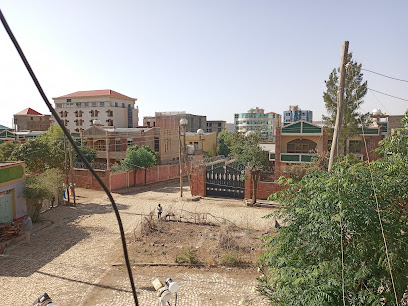
Africa Hotel
Discover the heart of Ethiopia with a stay at Africa Hotel in Aksum, where history meets hospitality amidst breathtaking landscapes.

Obelisk Hotel Aksum
Unwind in the heart of Aksum at Obelisk Hotel, combining modern comfort with a rich cultural experience in Ethiopia's historic city.
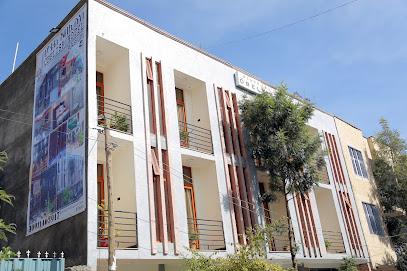
MESI SUPER MARKET
Explore MESI Super Market in Aksum for a vibrant shopping experience filled with local flavors and essential goods.
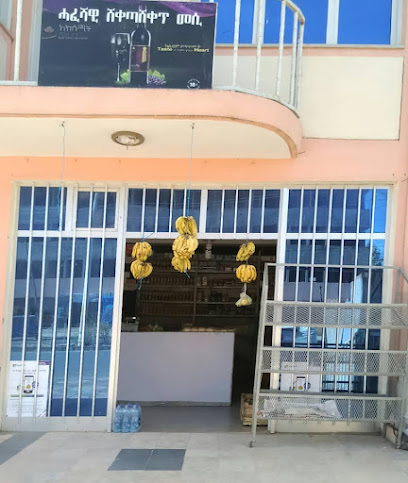
Nyala Hotel Axum
Discover the rich heritage of Axum while enjoying the comfort and hospitality of Nyala Hotel, your perfect base for exploration.

Prima Restaurant and Pizzeria
Experience Aksum's rich culinary scene at Prima Restaurant and Pizzeria, where Ethiopian tradition meets Italian flavors in a cozy setting.
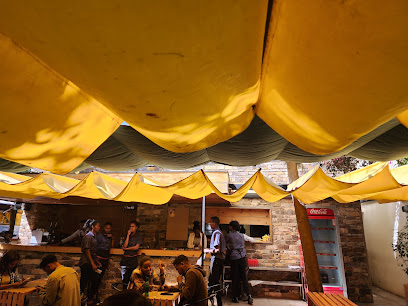
Afro Lounge Africa Hotel
Discover the lively Afro Lounge Africa Hotel in Shire, where vibrant decor, refreshing drinks, and warm hospitality await your arrival.

Nati Juice
Discover the vibrant flavors of freshly squeezed juices at Nati Juice in Aksum, a refreshing oasis for all travelers.

Fikada
Discover the warmth of Ethiopian hospitality and enjoy traditional drinks at Fikada, the heart of Aksum's vibrant nightlife.

Deamat
Experience the vibrant nightlife of Aksum at Deamat, where local culture meets modern bar vibes in a lively atmosphere.

ትግራይ ባር እና ሬስቱራንት
Discover the vibrant ambiance of Tigrai Bar in Aksum, where local culture and refreshing drinks await your visit.
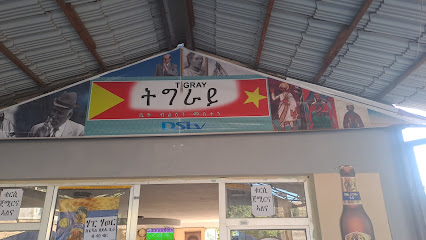
Local Phrases
-
- Helloሰላም
[Selam] - Goodbyeዋላ
[Wala] - Yesአዎ
[Awo] - Noአይ
[Ay] - Please/You're welcomeእባክህ
[Ebakh] - Thank youአመሰግናለሁ
[Amesegnalehu] - Excuse me/Sorryጣላት ነበር
[Talat neber] - How are you?እንዴት ነህ?
[Endet neh?] - Fine. And you?ጥሩውን. ከመንገድ ነህ?
[Terun. Kemangid neh?] - Do you speak English?እንዴት እንዴትን እወዳለሁ?
[Endet endeten ewedalehu?] - I don't understandአልተወልዱም
[Altweldum]
- Helloሰላም
-
- I'd like to see the menu, pleaseመነሻ ብዝሒ እንቀብል
[Menasha bzihi enkebel] - I don't eat meatእኔ ምንም እኩልን
[Ene minm ekuln] - Cheers!እንዴት ሁላ
[Endet hula] - I would like to pay, pleaseእንዴት እንቀብል
[Endet enkebel]
- I'd like to see the menu, pleaseመነሻ ብዝሒ እንቀብል
-
- Help!እርሱ!
[Ersu!] - Go away!ለኋላ!
[Lekhla!] - Call the Police!ፖሊሲን አይኖር!
[Polisin aynor!] - Call a doctor!የጡት አይኖር!
[Yetut aynor!] - I'm lostእኔ ተሰምቷል
[Ene tesemtal] - I'm illእኔ ሀንድ ነኝ
[Ene hand neng]
- Help!እርሱ!
-
- I'd like to buy...እኔም ገበያ እንቀብል
[Enem gebeya enkebel] - I'm just lookingእኔ በትንሳኤ ነኝ
[Ene betnsahe neng] - How much is it?እንዴት ውስጥ ነው?
[Endet wusti new?] - That's too expensiveእውነት ከማን የለም
[Ewnet kemann yellem] - Can you lower the price?እንዴት መመለስ ነው?
[Endet memales new?]
- I'd like to buy...እኔም ገበያ እንቀብል
-
- What time is it?ሰዓት ልጅ ነው?
[Saat lij new?] - It's one o'clockአንድ ሰዓት ነው
[And setat new] - Half past (10)አምስት ሰዓት ለውጥ
[Amsit setat lewet] - Morningጥዋት
[Tiwat] - Afternoonከምበረ
[Kamber] - Eveningማታ
[Mata] - Yesterdayትናንሽ
[Tannash] - Todayዛሊም
[Zalim] - Tomorrowነገር
[Negar] - 1አንድ
[And] - 2ሁለት
[Hulet] - 3ሶስት
[Sost] - 4አራት
[Arat] - 5አምስት
[Amst] - 6ስድስት
[Sidist] - 7ሰባት
[Sebat] - 8ስምንት
[Siment] - 9ዘጠኝ
[Zetegna] - 10አስር
[Asir]
- What time is it?ሰዓት ልጅ ነው?
-
- Where's a/the...?ለምለም ነው?
[Lemlem new?] - What's the address?አድማስ ምን ነው?
[Admas min new?] - Can you show me (on the map)?እንዴት አሳዙኝ (በካስማን)?
[Endet asazun (bikasman)?] - When's the next (bus)?በቀጣይ ተልባም ነው?
[Beketay telaybam new?] - A ticket (to ....)ካም ከፈለገ
[Kam kefellage]
- Where's a/the...?ለምለም ነው?
History of Axum
-
The Axumite Kingdom, also known as the Kingdom of Aksum, emerged around the 1st century AD and is considered one of the great civilizations of the ancient world. It was located in what is now northern Ethiopia and Eritrea. The kingdom's strategic location facilitated trade between the Roman Empire and ancient India, making it a bustling hub of commerce and culture.
-
In the 4th century AD, King Ezana of Axum converted to Christianity, making it one of the first major empires to adopt the religion. This conversion had a profound impact on the culture and architecture of the region, leading to the construction of numerous churches and the spread of Christian iconography throughout the kingdom.
-
One of the most iconic symbols of Axum are its towering stelae, or obelisks. These granite monuments, some of which stand over 30 meters tall, were erected to mark the graves of Axumite kings and nobles. The most famous of these is the Great Stele, which is intricately carved with false doors and windows, mimicking the architecture of Axumite palaces.
-
Axum is often associated with the legendary Queen of Sheba, who, according to Ethiopian tradition, ruled over the region in the 10th century BC. The Queen of Sheba is said to have visited King Solomon in Jerusalem, and their union resulted in the birth of Menelik I, the founder of the Solomonic dynasty in Ethiopia.
-
By the 7th century AD, the Axumite Kingdom began to decline due to various factors, including the rise of Islamic caliphates that disrupted trade routes and internal strife. Despite its decline, the legacy of Axum continued to influence the region's culture, religion, and politics for centuries.
-
Today, Axum is a UNESCO World Heritage site, attracting tourists and scholars from around the world. The town is home to numerous archaeological sites, museums, and the Church of St. Mary of Zion, where Ethiopian tradition claims the Ark of the Covenant is housed. Axum remains a symbol of Ethiopian heritage and pride.
Axum Essentials
-
Axum is located in the Tigray region of northern Ethiopia. The nearest major airport is Axum Airport (AXU), also known as Emperor Yohannes IV Airport, which offers domestic flights from Addis Ababa and other Ethiopian cities. International travelers typically fly into Addis Ababa Bole International Airport (ADD) and then take a domestic flight to Axum. Alternatively, there are buses and private car hires available for those who prefer to travel by road, though this can be a lengthy journey.
-
Once in Axum, getting around is relatively straightforward. Taxis and bajajs (three-wheeled vehicles) are commonly used for short distances and can be hailed on the street. For longer trips or tours, you can hire a private car with a driver. Walking is also a viable option for exploring the town and its historical sites, as many attractions are within a reasonable distance of each other.
-
The official currency in Ethiopia is the Ethiopian Birr (ETB). Credit cards are accepted in some hotels and higher-end restaurants, but it is advisable to carry cash for smaller establishments and local markets. ATMs are available in Axum, but it's wise to withdraw sufficient cash in Addis Ababa to ensure you have enough funds for your stay.
-
Axum is generally considered safe for tourists, but it's important to take standard precautions. Avoid walking alone at night in unfamiliar areas and keep an eye on your belongings, especially in crowded places. While Axum does not have specific high-crime areas targeting tourists, staying vigilant and aware of your surroundings is always a good practice.
-
In case of an emergency, dial 911 for immediate assistance. The local police station and medical facilities are available in Axum. It is highly recommended to have travel insurance that covers medical emergencies. For minor health issues, there are pharmacies in the town where you can purchase over-the-counter medications.
-
Fashion: Do dress modestly, especially when visiting religious sites. Avoid wearing revealing clothing. Religion: Do respect local customs and traditions. Always remove your shoes and cover your head when entering churches. Public Transport: Do be respectful and give up your seat to elderly passengers. Don't eat or drink on public transport. Greetings: Do greet people with a handshake. A slight bow of the head is also a sign of respect. Eating & Drinking: Do try local delicacies and accept food offerings graciously. Don't refuse hospitality, as it is considered impolite.
-
To experience Axum like a local, visit the local markets where you can buy fresh produce and traditional Ethiopian goods. Engage with locals, as they are often friendly and willing to share stories about the town's history and culture. Don't miss visiting the famous Stelae Park, the Church of St. Mary of Zion, and the Ark of the Covenant chapel. For a unique experience, attend a traditional coffee ceremony to understand the local culture better.
Trending Landmark in Axum
-
Axum Tsion St. Mary
-
ኣኽሱም ሓውልት | ሓወልቲ ኣኽሱም ቑፅሪ-1 | Akhsum Obelisk No-1
-
Dungur Palace (Queen of Sheba Palace)
-
ቤተ መንግስቲ ንግስቲ ሳባ | Dungur Palace (Queen of Sheba Palace)
-
King Kaleb Palace
-
Ezana Stone
-
Atranos Fantasy Hotel and Spa
-
Aksum
-
Nyala Hotel Axum
-
Kahsay Beyene, Axum, Tigray
-
Queen of Sheba's Bath
-
Abba Pentalewon
-
ቤተ ክርስትያን እንዳ ኣርባዕተ እንስሳ / Arabtu Ensessa Church
-
Aksum Old Quarter
-
ቤተክርስቲያን እንዳየሱስ | Jesus Church
Nearby Cities to Axum
-
Things To Do in Adi Quala
-
Things To Do in Mendefera
-
Things To Do in Adi Keyh
-
Things To Do in Mekele
-
Things To Do in Dekemhare
-
Things To Do in Asmara
-
Things To Do in Keren
-
Things To Do in Gondar
-
Things To Do in Lalibela
-
Things To Do in Teseney
-
Things To Do in Bahir Dar
-
Things To Do in Debre Markos
-
Things To Do in Jizan
-
Things To Do in Dikhil
-
Things To Do in Tadjoura











